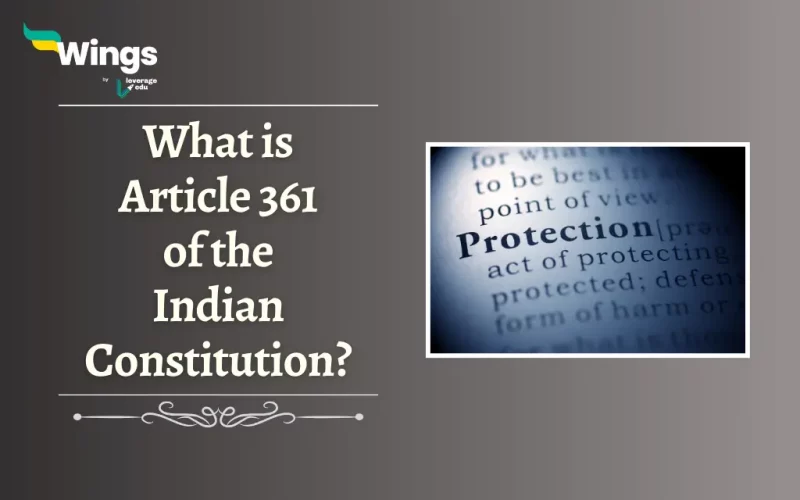Article 361 of the Indian Constitution protects the President of India and Governors. Moreover, no action can be taken against them by any of the Indian courts and they will not be answerable to any of them. Furthermore, Article 361 shields the President and Governors of States from criminal prosecution and arrest while serving their tenure in office. Therefore, this immunity guarantees they can perform their duties without worrying about legal action. In addition, if they have to pass rules that might threaten the integrity of any place only for the welfare of the State or country, they are free to have a voice. Read on to learn more about Article 361 and its key aspects and details.
Important Key Aspects of Article 361
Table of Contents [show]
In addition, there are 2 key aspects to this protection:
- No Criminal Proceedings: No criminal cases can be filed or continued against the President or Governor while they hold office.
- Immunity from Arrest or Imprisonment: The President and Governors cannot be arrested or imprisoned during their term in office.
Also Read: Who Wrote the Constitution of India?
Details of Article 361
Article 361 protects the President and Governors from lawsuits and arrests while in office. Moreover, this immunity allows them to perform their duties freely. Here is the gist:
- Immunity for Official Actions: No courts can hold them accountable for actions taken within their official capacity.
- Exception: Impeachment Proceedings: The President’s conduct can be reviewed if Parliament initiates impeachment proceedings (Article 61).
- Government Can Be Sued: This immunity doesn’t prevent lawsuits against the national or State governments.
- Personal Lawsuits: Civil lawsuits against the President or Governor for personal actions (past or present) require a two-month written notice beforehand.
Also Read: How many Parts are there in the Indian Constitution?
Why is Article 361 currently in the News?
Article 361 of the Indian Constitution is in the news because of a sexual harassment complaint against the Governor of West Bengal, CV Ananda Bose.
- As this article gives immunity to the President and Governors for actions taken while in office.
- Moreover, the controversy lies in whether it applies to accusations like sexual harassment.
- While criminal proceedings cannot be initiated during the term, the extent of this immunity is being debated.
- Some argue that the immunity applies only to official actions, while others question if it is a blanket shield.
Therefore, this case has brought Article 361 into the spotlight, hence raising questions about accountability for those in a high office of the government.
FAQs
It barred courts of law from questioning any action taken by the President of India or Governor(s) of a State.
It is a disqualification for appointment to the remunerative political posts.
Article 360 of the Hon’ble Indian Constitution empowers the President to invoke financial emergency.
Related Blogs
This is everything about Article 361 of the Indian Constitution. Moreover, you may even read more blogs and empower yourself with knowledge regarding Civics and Polity!
 One app for all your study abroad needs
One app for all your study abroad needs















 45,000+ students trusted us with their dreams. Take the first step today!
45,000+ students trusted us with their dreams. Take the first step today!
